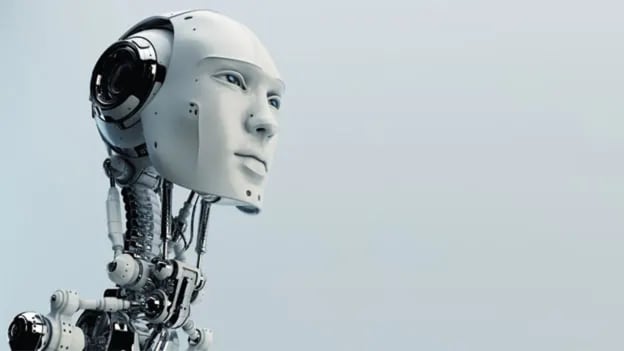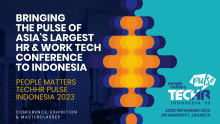Role of HR in an AI-led future of work

That technology is transforming the nature of work is now an understatement. Across the globe, job roles are going through massive changes owing to the adoption of innovative technologies such as artificial intelligence (AI), machine learning, data science and more.
AI and the changing nature of jobs
The India Skills Report 2018 suggested that India’s workforce will increase from 473 million in 2018 to 600 million in 2022. It also stated that large-scale technological transformation resulting from AI and automation, along with the fast-growing talent pool and gig workforce, will reduce the shelf life of skills significantly.
As a result, the nature of jobs is changing – and fast! In fact, a McKinsey report stated that while there may be enough jobs for professionals till 2030, the transitions within job roles will be very challenging. Almost 375 million professionals will need to switch occupational categories and acquire new skills since automation will take over one-third from 60 percent of all jobs.
Here’s looking at some of the top interpretations from my interviews with top recruiters:
The evolving role of HR in the tech-driven jobs landscape
In a highly data-driven world, HR leaders are required to operate in an objective manner by focusing on facts and data instead of perceptions. It is only using data, and not personal opinions, that HR leaders must measure the growth of professionals and the larger organization.
Further, since the skill requirements are evolving rapidly, they are required to focus on employee training and development. By encouraging career coaching and creating a learner-centric system in their organization, HR leaders can ensure the constant evolution of employee skillsets.
How changing behavioral trends are transforming organizations
The impact of the 4th industrial revolution has been profound – not just in terms of business processes but also on the behavioral trends of professionals. HR leaders across the country have noticed a resistance to change among employees, who are uncertain about their jobs due to skill redundancy. There is a rising impatience or frustration among professionals, which is leading to stress and impacting work. In such a scenario, professionals need HR leaders who can guide them through the change and help them unlearn and relearn at a rapid pace.
It is only with the right leadership that professionals will be able to move ahead from their old ways of thinking and emerge as indispensable resources for their organizations.
What HR leaders are looking for?
As the workplace continues to transform, HR leaders are quickly changing their areas of focus while hiring. While technical skills are necessary for the tech-centric business ecosystem, they are also looking for soft skills that truly set human workers apart from machines. So, what are new-age HR professionals looking for in potential employees?
According to the survey results, they are looking at professionals with the right balance of emotional and cognitive intelligence. They must have a dynamic communication style that resonates with new-age professionals, especially millennials and GenZennials. Furthermore, and most importantly, they must display the ability to become a leader who can take responsibility and ownership while empowering their team.
Addressing the existing challenges using the 5 A’s
By now, it is quite clear that thriving in the new-age jobs landscape requires embracing change and not resisting it. Today, helping employees accept the changes and remain relevant in their job roles is a crucial aspect of the HR role. For this, HR professionals must foster leaders based not just on their cognitive abilities, education, and experience, but also on their emotional intelligence.
HR professionals must focus on how the leaders are working under stress and understand their leadership style. Gauging the team’s morale is also a great way to recognize the leader’s capabilities. While it is true that HR leaders need to align their goal with the company’s vision, making sure that everyone in the workplace has the required guidance and support is also crucial. To make this happen, they must focus on the abilities of the organization’s leaders to see a change in the work dynamics.
The HR focus should be on a sustainable and positive work culture where everyone has a voice and the chance to share their ideas and opinions. A great example of this is Microsoft CEO Satya Nadella who made empathy the center of his cultural revolution in order to boost customer experience, foster innovation and create more internal and external collaborations.
Apart from empathy, HR leaders should promote diversity and build empowered teams. They must encourage professionals to work outside of silos and look for mentors and role models who can help them grow further. Finally, the most important thing for HR leaders is to have a growth mindset and help other employees have one too. The best way to adopt a growth mindset is to follow the 5 A’s – Awareness, Acceptance, Authenticity, Adaptability, and Affability.
- Awareness: Being aware of yourself, your current reality, your self-limiting beliefs and how these impact your growth are extremely important for true leadership. You must also be aware of the current environment and what is needed from your end to make the shift towards success.
- Acceptance: Accepting the current reality and moving ahead without making any false assumptions. Complete acceptance of things and people helps you engage all of your energy into your current task so that you can maximize your chances of performing and leading well.
- Authenticity: When you don’t function with realism, you come from a place of force and internal conflict even if no one else is aware of it. Understand that we are all imperfectly perfect and that we all have blind areas. Leverage your existing strength to figure out ways that will help you grow and develop further.
- Adaptability and Agility: Become flexible and adaptable, learn new skills, and cultivate a growth mindset. New skills will help you stay relevant, continuously work alongside them and not fear automation. The workforce must understand that machines will not replace them, but only create jobs that require them to learn new technical skills in order to excel.
- Affability: Develop and build trusted relationships with employees, colleagues, and your team. While it will be necessary for people to work in collaboration with technology, there will also be a growing need for people to develop specialized skills for how they interact with each other. These include creativity, collaboration, and interpersonal skills.
These values will help HR leaders adopt a growth mindset with which they will be able to encourage and support the workplace to thrive. By adopting such a positive and nurturing mindset, they will be setting a good example for the organization’s leaders and helping them further inspire the workforce. Leading by example and ensuring the evolution of employees, I feel, is the utmost responsibility of new-age HR leaders.
It is important for HR leaders to help the workforce understand that artificial intelligence and automation will only take away repetitive tasks. When this happens, professionals will be able to focus on more creative roles that add immense value to the organization. Therefore, HR leaders must empower professionals with the right tools needed to flourish as AI continues to simplify – not steal – their jobs.















